|
Getting your Trinity Audio player ready...
|
In the wake of Genesis Global Trading (and a bunch of their subsidiaries) filing for bankruptcy, we should revisit the history of Genesis’ parent company: Digital Currency Group.
DCG is an incubator and investment conglomerate founded by Barry Silbert. In the 2017-2022 era, Silbert transitioned to a heavily multi-chain and speculation/trading based investment strategy to take advantage of frothy markets which led to incredible profits and ended in one of the major bankruptcies of this bear market.
Just a few years before, he was speaking a very different tune about bitcoin.
In 2014, Silbert gave an interview to NBC explaining why he was bullish on Bitcoin, and humorously enough, I agreed with all his points! It’s a great illustration of my perpetual and ongoing point that Bitcoin is unchanged in BSV, but notably different in BTC as a product of The Bitcoin Civil War.
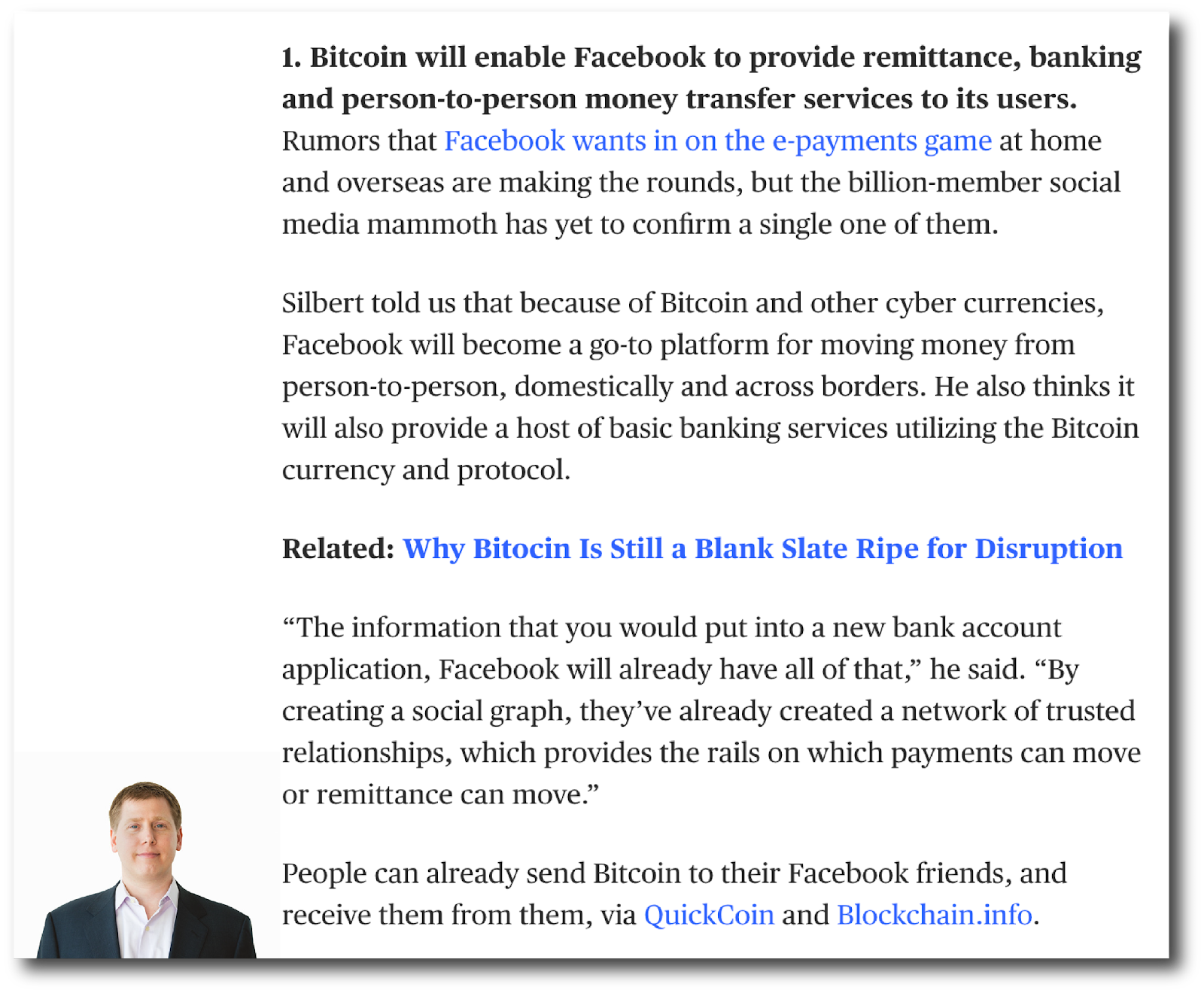
Funny, this sounds like it could have been said by myself, the guys from Twetch or even Craig Wright. Instead, Bitcoin was hampered, Facebook is on its 3rd digital currency iteration, and both money and data silos in the social media space have only gotten worse in the meantime.
Too bad we didn’t adopt Bitcoin on Facebook in 2014!

Curious timing for Barry to bring this up because, at the time, most bitcoiners thought this was inevitable. Bitcoin was an incredible payments technology, and by 2023, we probably would have seen Visa, MasterCard and PayPal adopt Bitcoin as the network upon which they ran their payments.
However, less than a year from the time of this interview, Silbert accepted money from Mastercard Ventures which led to DCG investing in the creation of companies like Blockstream and Lightning Labs who were dedicated to hampering Bitcoin so that their side chain and “second layer” solutions could be commercialized to the detriment of bitcoin adoption.
Sorry, “commerce on the internet,” DCG took money from payments companies that had other plans for Bitcoin! And it all happened very rapidly in 2015—which is curious.
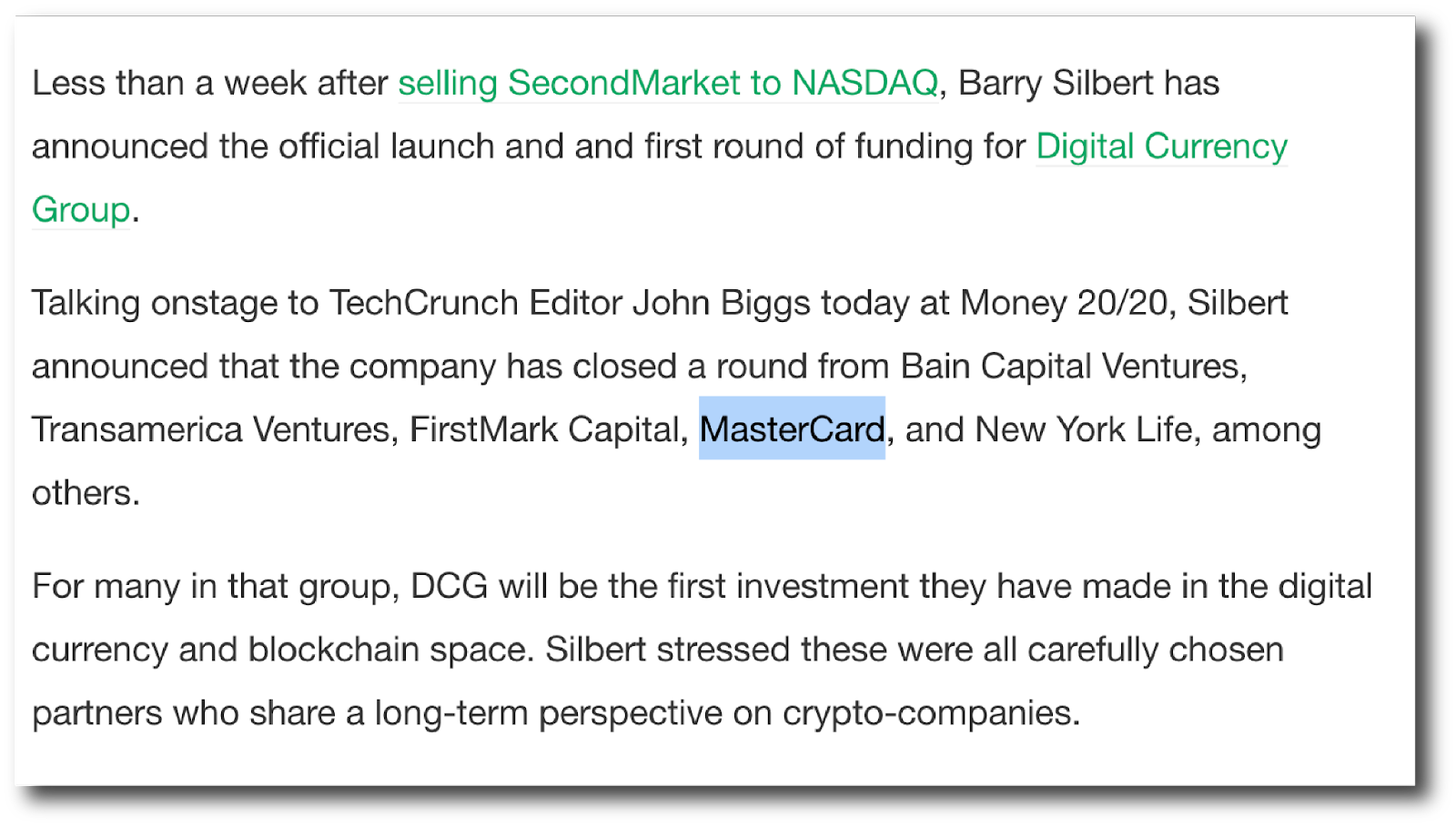
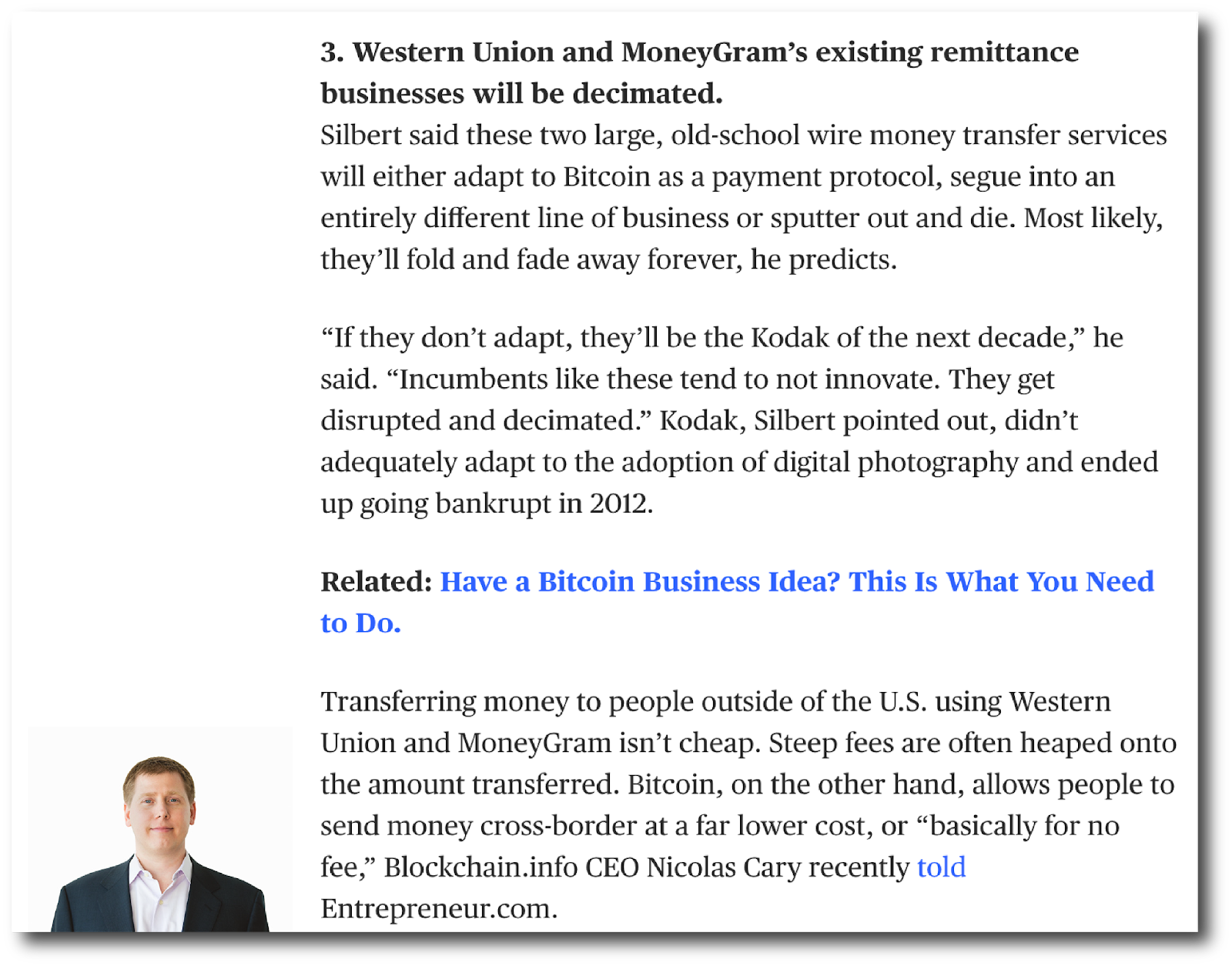
This one is extra sad because global remittance was such an obvious use case for early Bitcoin adoption. MoneyGram and Western Union both could have used bitcoin as liquidity, transmission and settlement of global funds at any point in the last 10 years, and it would have worked famously.
Instead, because of the Bitcoin Civil War, Ripple entered into an agreement with MoneyGram to offer their centralized (and DCG partnered) RippleNet solution which ultimately failed and was deprecated in 2021 with a brief press release.
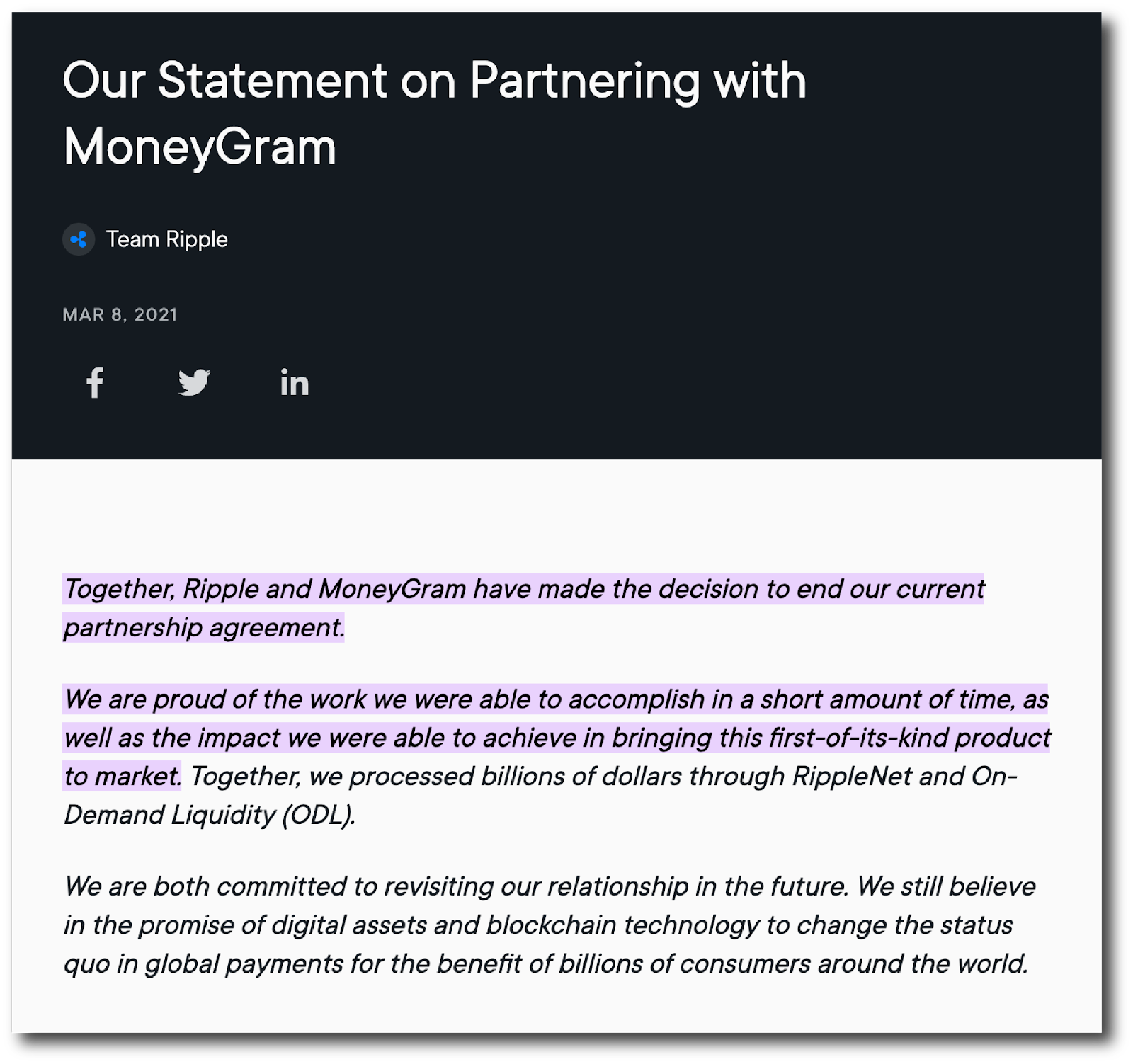
Furthermore, not only have MoneyGram and Western Union persisted in the vacuum that Bitcoin left open, but in the meantime, we have seen the rise of Venmo, Zelle, WeChat and innumerable national and regional payment and remittance solutions take rise around the world.
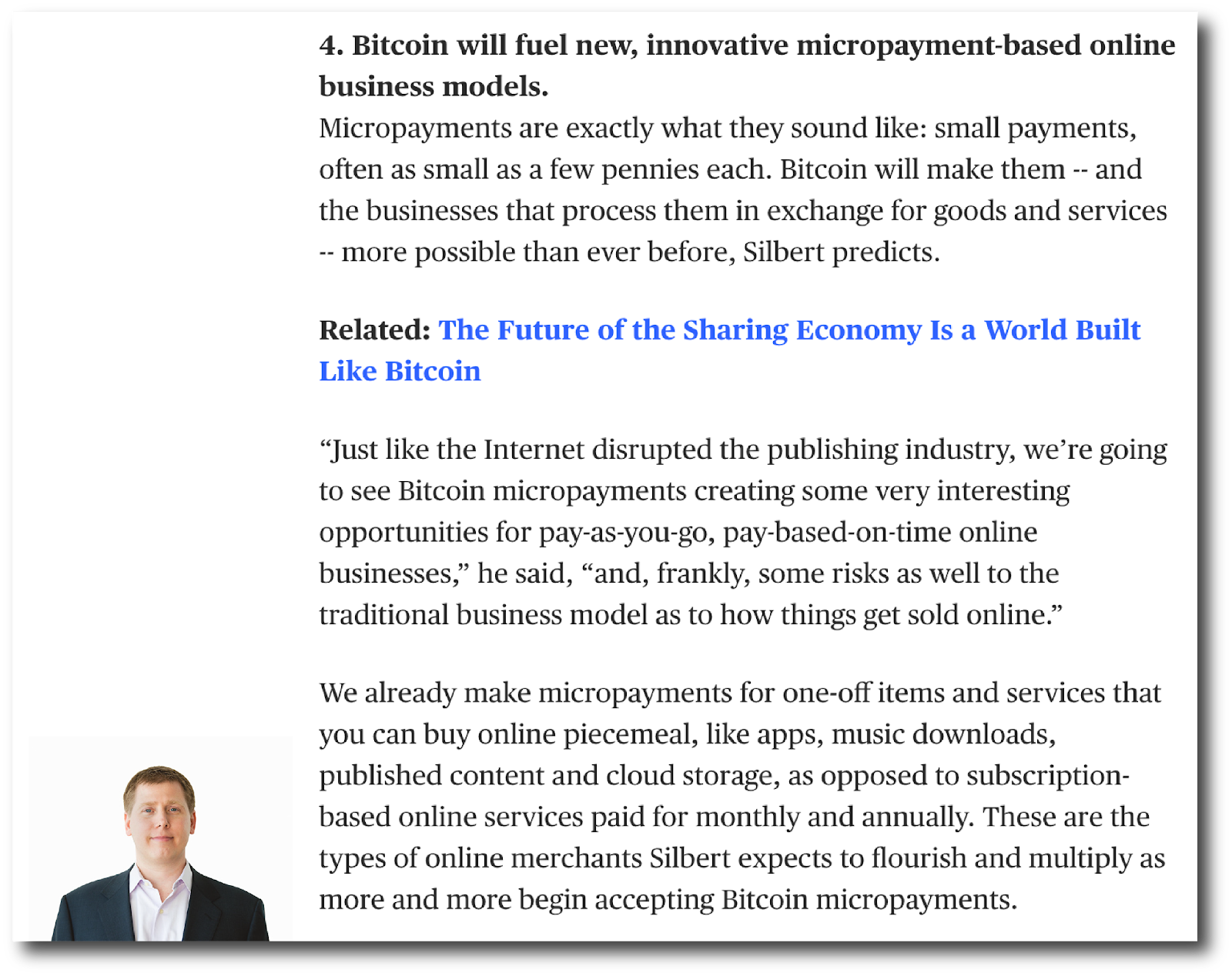
For the last entry, I have to agree with Silbert yet again. It’s unfortunate, but because of his waffling on Bitcoin, he has not made any progress toward achieving these goals. His portfolio companies have, instead, heavily emphasized margin trading, lending, borrowing, yield farming and custodial services for the crypto casino economy.
Folks like myself continue to focus on Silbert’s original stated vision of Bitcoin. It was truly Satoshi’s Vision when we were all bitcoiners, and only in BSV do we work toward these grand challenges in global finance.
The saddest part is that now we do it mostly alone and under public scrutiny under the presumption that Bitcoin was never intended for micropayents.
What happened to you, Barry?
Read the original interview here.
Follow CoinGeek’s Crypto Crime Cartel series, which delves into the stream of groups—from BitMEX to Binance, Bitcoin.com, Blockstream, ShapeShift, Coinbase, Ripple, Ethereum, FTX and Tether—who have co-opted the digital asset revolution and turned the industry into a minefield for naïve (and even experienced) players in the market.

 02-28-2026
02-28-2026 




